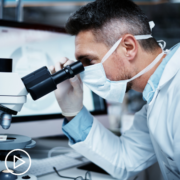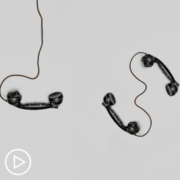Potential Impact of Artificial Intelligence on Stomach Cancer Detection and Care
Potential Impact of Artificial Intelligence on Stomach Cancer Detection and Care from Patient Empowerment Network on Vimeo.
What role might artificial intelligence take in stomach cancer detection and care? Expert Dr. Joo Ha Hwang from Stanford Medicine shares his perspective on how AI might be most impactful in stomach cancer detection and care, how the FDA will be involved in AI use, and protections that must be put in place to safeguard patient interests.
See More from [ACT]IVATED Gastric Cancer
Related Resources:

|

Stomach Cancer Screening | How Asian and Latinx Patients Can Self-Advocate |

Can Stomach Cancer Risk Be Reduced by Treatment and Lifestyle Changes? |
Transcript:
Lisa Hatfield:
Dr. Hwang, what is the current role of artificial intelligence or AI in gastric cancer care? And how do you envision the role of AI in the future management of gastric cancer?
Dr. Joo Ha Hwang:
Yeah, it’s a great question, very early day for AI but AI is really the hot topic, in the field of medicine, and AI will definitely play a role in, the detection of gastric cancer on probably many fronts, obviously the most straightforward one is during endoscopy, we can use AI to help identify early gastric cancer, and one of the issues in the United States is, since gastric cancer is a relatively rare finding, and it can be very subtle on endoscopy, a lot of endoscopists can miss an early gastric cancer or a precancerous lesion, and so we’re hoping to use AI to better identify, these lesions, since they’re not super common, and we’re really not taught to look for these lesions, this is an area that AI can be helpful. But the other, probably easier implementations of AI would be through just medical records and just using AI to help identify people who are at high risk.
And then flagging these patients for physicians to say, “Hey, this patient should be considered for H. pylori testing, this patient should be considered for endoscopic screening.” So I think that’s actually a simpler implementation of AI. So I think that AI will definitely help, it should help with outcomes, the challenge really is, working with the FDA to allow AI to be implemented in the clinical setting, that’s not a really simple task, because AI can also potentially be used for nefarious reasons and so we certainly have to protect patients’ identities, we have to protect patients’ information.
And so, there’s a lot of steps and a lot of responsibility that comes with AI. But I would say stay tuned, it will definitely, you’ll see more and more AI implementation over the years to come, and overall it should be very positive for patients for all disease processes, including gastric cancer.







![[ACT]IVATED Gastric Cancer Spanish Resource Guide](https://powerfulpatients.org/wp-content/uploads/ACTIVATED-Gastric-Cancer-Spanish-Resource-Guide-180x180.png)


